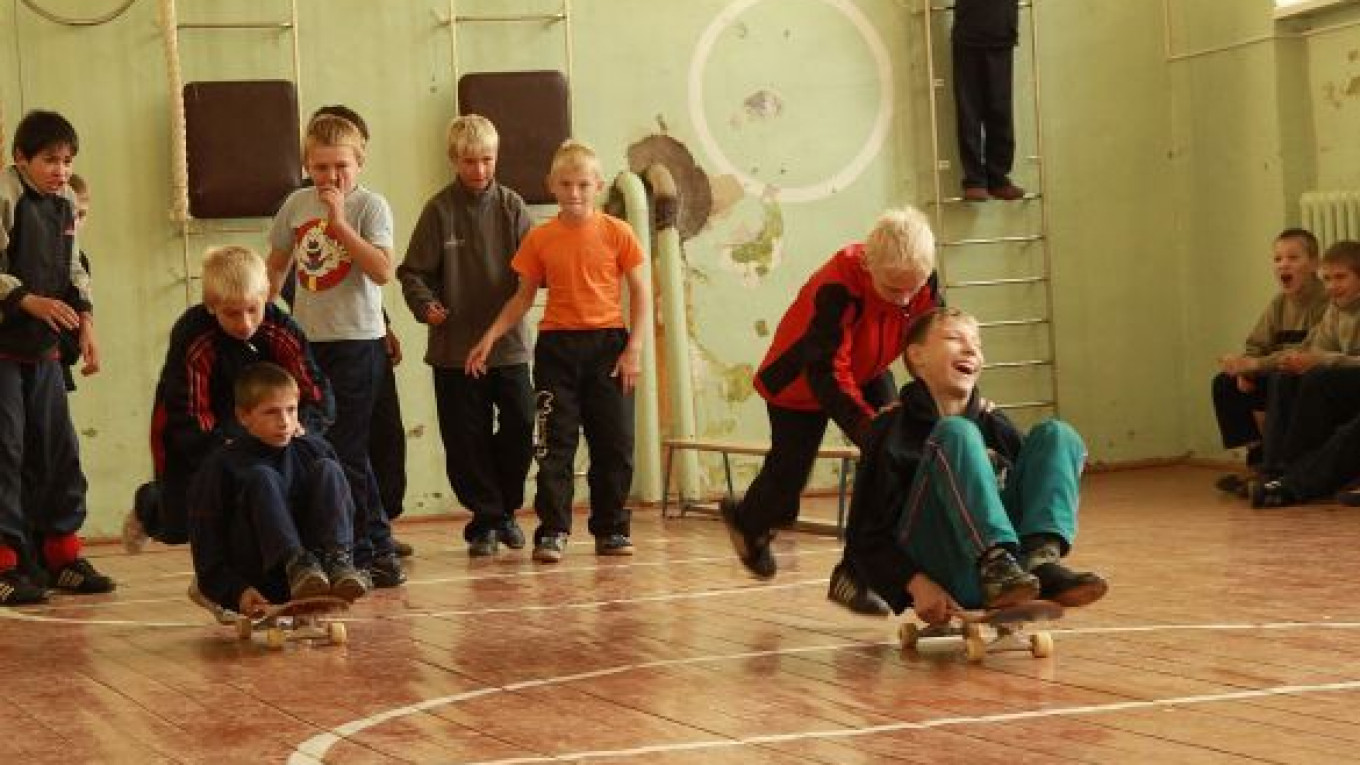When the now-infamous ban on U.S. adoptions was first introduced in the State Duma in mid-December, some suggested that a more appropriate response to the United States' sanctions-imposing Magnitsky Act would have been to push their compatriots to adopt American children.
"We shouldn't of our children, but encourage our people to start adopting American children, given the quality of life [in Russia]," to TV host Vladimir Solovyov, one of the ban's early critics.
The idea of Russians adopting American children was floated at least as early as April, when children's ombudsman Pavel Astakhov, a long-standing opponent of international adoptions, encouraged Russians to get in line to take in American orphans "out of principle."
His comments came months before Russia ratified a bilateral adoption agreement with the United States aimed at strengthening oversight following a series of abuse scandals — including 19 deaths since the late 1990s — involving Russian orphans in U.S. adoptive families.
Though the agreement regulates adoptions in both directions, most, if not all, cases have involved U.S. parents and Russian orphans, not the other way around.
Whereas 45,000 Russians have been adopted by American families since 1999, the U.S. State Department is not aware of any cases in which Russian citizens have adopted children from the United States, a department spokesman said in an e-mail.
Outgoing U.S. adoptions do take place, but they're rare. According to State Department records, 286 U.S. orphans have been adopted by foreign citizens living abroad since April 2008. The receiving countries are mostly highly developed Western nations, led by Canada and the Netherlands.
Experts interview by The Moscow Times said they couldn't recall an instance in which a U.S. orphan moved to Russia.
"Our agency has not had a request for an outgoing case to Russia, and I do not know any other cases that have been done," Anna Belle Illien, executive director of Illien Adoptions International, one of a handful of that assists with outgoing adoptions, said by e-mail.
A spokeswoman for AdoptUSKids, a U.S. government organization that promotes adoption and connects adoptive families with orphans, said she didn't recall ever receiving questions from a Russian family about how to adopt a U.S. child.
It's not just American orphans; Russians don't adopt foreigners in general, said Yelena Fortuna, editor of the My Dears web portal for adoptive parents.
"Despite the fact that many adoptive parents can be picky … there are more than enough children [in Russia] to go around," she said.
Anton Zharov, a lawyer who specializes in children's issues, said there weren't any U.S. children for Russians to adopt, because all of them could eventually be placed in American families.
The only cases of Russians adopting foreigners, as far as Successful Orphans charity director Alexander Gezalov was aware, involved foreigners who had received Russian citizenship.
Everyone else was scared away by the bureaucracy. "Domestic adoptions are hard enough," he said, adding that the documents, visas and money required to adopt an American were just too daunting.
Immediately following the passage of the U.S. adoption ban, part of the so-called Dima Yakovlev Act, President Vladimir Putin to boost domestic adoptions by, among other things, simplifying the domestic adoptions procedure.
A plurality of respondents 37 percent, to a Jan. 18-21 poll by the independent Levada Center said this was the single most important thing that the government could do to help orphans.
The Education and Science Ministry, which oversees adoptions, is considering lowering bureaucratic hurdles for prospective families and paying 100,000 rubles ($3,300) to those who adopt "hard-to-place" children, including those with disabilities, Monday.
Such families currently receive 13,000 rubles ($430), and Kommersant quoted an adoptive mother as saying it can take more than the allotted three months to collect eight required stamps from three doctors and five clinics, meaning that many families are forced to return to square one.
There are currently about 110,000 Russian children living in orphanages, a number that appears to be falling. In the past two years, 5,000 more children were either adopted or placed in foster families than were entered into the orphanage system, the newspaper reported.
Meanwhile, the Investigative Committee on Wednesday opened a symbolic criminal case against an American family convicted of abusing their adopted 6-year-old Russian son, committee chief Alexander Bastrykin said, Interfax reported.
Nine other such cases involving 12 children are pending, and the U.S. Justice Department has refused to provide documents requested by the Russian government in four of them, an Investigative Committee spokesman said late last month.
Zharov, the lawyer, dismissed the investigations. "I don't think this is about justice; I think it's about politics," he said, explaining that most, if not all, of the parents had already been convicted by U.S. courts and therefore, according to Russian law, could not be retried in a Russian one.
Adoption Agencies: , ,
Contact the author at j.earle@imedia.ru
Related articles:
A Message from The Moscow Times:
Dear readers,
We are facing unprecedented challenges. Russia's Prosecutor General's Office has designated The Moscow Times as an "undesirable" organization, criminalizing our work and putting our staff at risk of prosecution. This follows our earlier unjust labeling as a "foreign agent."
These actions are direct attempts to silence independent journalism in Russia. The authorities claim our work "discredits the decisions of the Russian leadership." We see things differently: we strive to provide accurate, unbiased reporting on Russia.
We, the journalists of The Moscow Times, refuse to be silenced. But to continue our work, we need your help.
Your support, no matter how small, makes a world of difference. If you can, please support us monthly starting from just $2. It's quick to set up, and every contribution makes a significant impact.
By supporting The Moscow Times, you're defending open, independent journalism in the face of repression. Thank you for standing with us.
Remind me later.






